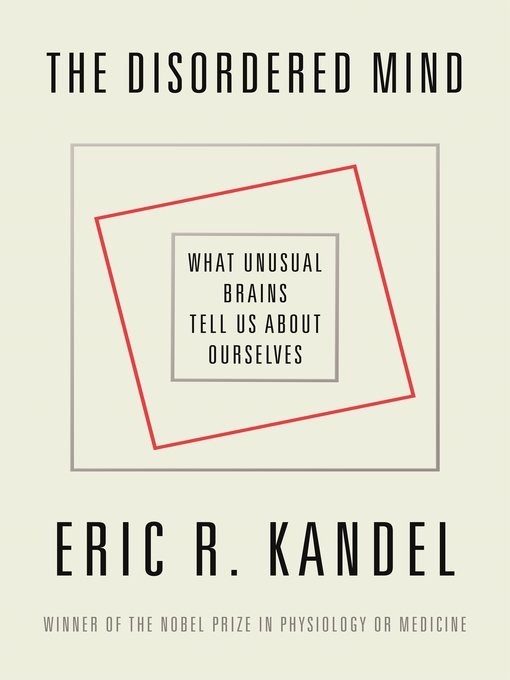A Nobel Prize–winning neuroscientist's probing investigation of what brain disorders can tell us about human nature
Eric R. Kandel, the winner of the Nobel Prize in Physiology or Medicine for his foundational research into memory storage in the brain, is one of the pioneers of modern brain science. His work continues to shape our understanding of how learning and memory work and to break down age-old barriers between the sciences and the arts.
In his seminal new book, The Disordered Mind, Kandel draws on a lifetime of pathbreaking research and the work of many other leading neuroscientists to take us on an unusual tour of the brain. He confronts one of the most difficult questions we face: How does our mind, our individual sense of self, emerge from the physical matter of the brain? The brain's 86 billion neurons communicate with one another through very precise connections. But sometimes those connections are disrupted. The brain processes that give rise to our mind can become disordered, resulting in diseases such as autism, depression, schizophrenia, Parkinson's, addiction, and post-traumatic stress disorder. While these disruptions bring great suffering, they can also reveal the mysteries of how the brain produces our most fundamental experiences and capabilities—the very nature of what it means to be human. Studies of autism illuminate the neurological foundations of our social instincts; research into depression offers important insights on emotions and the integrity of the self; and paradigm-shifting work on addiction has led to a new understanding of the relationship between pleasure and willpower.
By studying disruptions to typical brain functioning and exploring their potential treatments, we will deepen our understanding of thought, feeling, behavior, memory, and creativity. Only then can we grapple with the big question of how billions of neurons generate consciousness itself.
- Available Now - Ebooks
- Unputdownable ebooks!
- New eBook additions
- Rapid Reads! (Always available)
- Read Before You Watch
- Addiction Affects Everyone
- NSFW! - ebooks
- Harry Potter around the world
- 中文标题
- Livres en Français
- Graphic novels & comics - for adults
- Most popular
- Read a Banned Book
- See all
- New audiobook additions
- Unputdownables!
- Read a Banned Book
- Hola, Bonjour, Hallo, Ciao, Namaste, Marhaba! Learn a language
- Author interviews (Professional Book Nerds) - Always Available - Audio podcasts
- Nonfiction Audiobooks - Always Available
- Fiction Audiobooks - Always Available
- En Français, comprenez-vous?
- по-русски, понимаете ли вы?
- NSFW!
- Harry Potter around the world
- Most popular
- Available now
- See all


